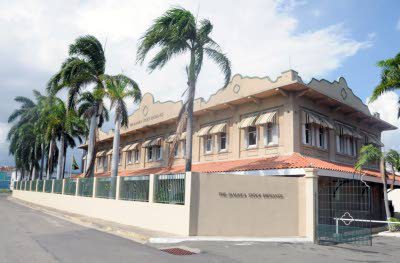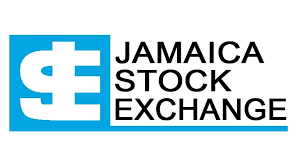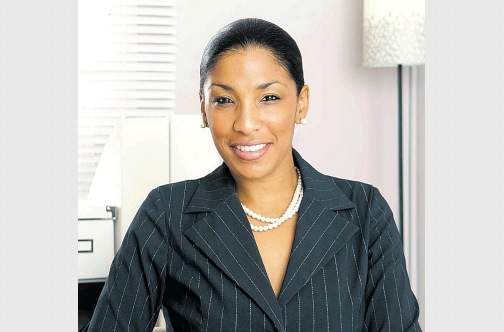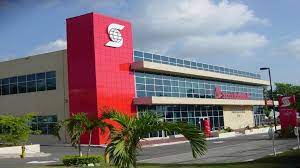“Those people who step up to the plate with confidence will come out of this crisis very well,”
Michael Lee Chin, Chairman NCB Group.
Hit hard by declining earnings, rapid depreciation of the Jamaican dollar, higher than projected interest rates and resulting tightened liquidity, 2008 proved to be the worst in the past six years for the many of the stocks listed on the Jamaica Stock Exchange. Overtaken by developments in the international and local markets, the three JSE indices failed to hold the position held in the early part of the year. Many of the Exchange’s blue chips traded at their lowest levels in 52 weeks as investors sold out and moved away from stocks to money market investments.
The report filed on the Jamaica Stock Exchange website for the end of December indicated that the year’s trading session reflected the following movement of the JSE Indices: –
* The JSE Market Index declined by 27,816.03 points (34.70%) to close at 80,152.03.
* The JSE Select Index declined by 944.23 points (47.57%) to close at 1,984.74.
* The JSE All Jamaican Composite declined by 32,787.93 points (44.31%) to close at 73,994.93.
Overall Market activity resulted from trading in 55 stocks of which 16 advanced, 35 declined and
4 traded firm. Market volume amounted to 2,295,666,264 units valued at over $24,066,168,185.51.
And the trend continues, with more companies trading even lower than the December 2009 closing figures. According to Steven Jackson writing recently in the Caribbean Business Report “The last time the market declined this much was in May 1996 at 12,936 points down 29 per cent year on year. But it is still better than in 1993 when the market lost 65 per cent of its value. It dipped from 32,421 points in January to 11,221 points by January 1994, losing over 90 per cent of its market capitalisation from J$1.45 billion to J$129.8 million according to Bank of Jamaica data.”
According to a leading brokerage firm in a published outlook on the economy for 2009, many of the quoted equity prices appear attractively priced relative to historical values. They also suggest that equity prices may well fall further before a rebound is seen, suggesting that even better bargains are on the horizon.
An interesting point raised by one analyst contact for this article was that “You don’t have to sell a lot of stock to impact price one way or the other.” Suggesting that small stock trades can and have impacted a company’s stock price, which is a concern for many and also implying an opportunity for manipulation. So the big question to be addressed by the Jamaica Stock Exchange is, should small trades be allowed to impact market prices. Businessuite understands that this concern has been raised by some companies. Donette Johnson, Senior Equities Trader at Jamaica Money Market Brokers, in responding to this point indicated that, “As a matter of fact, the JSE has attempted to address the perception of ‘manipulation’ on the market by introducing the average price being used as the closing price for the day. So no longer can brokers use 100 units at 11:59 to close stock prices at higher levels when indeed the market is trading at lower prices (this would give a misconception to investors and cause widespread disharmony among the investing public and even in some instances deter persons from even considering entering the market due to this perception and continued practice by brokers).”
But 2008 was a year when many of the companies listed on the Exchange saw the listed value of their stocks make drastic declines. Volumes traded was also on the high side, where in December for example Cable and Wireless Jamaica Ltd. was the volume leader with 503,461,572.00 units (21.93%) followed by Supreme Ventures Limited with 403,006,606 units (17.56%) and Jamaica Broilers Ltd. with 226,205,373 units (9.85%).
BOJ Impacts Market
According to financial analyst Fayval Williams, one of the contributing factors to the movement away from the stock market was the reversal in the local interest rate trend. Bank of Jamaica began raising interest rates in January, 2008. Interest rates were adjusted upwards by 1% across all tenors of BOJ instruments and have been rising since then making money market instruments more attractive versus stocks. Donette Johnson Senior Equities Trader Jamaica Money Market Brokers Limited, however saw it differently. “I beg to differ on this point, as interest rates started trending up as soon as the credit crunch hit in September ’08 and financial houses were converting left, right and center in order to meet margin calls being made by overseas brokers. As a result of this pressure to convert to US$ this put added pressure on the J$. So the BOJ responded to stabilise that currency market by increasing local interest rates.”
Another factor argued by Fayval Williams was the weakening economy going forward as investors realized that the US recessions would spill over into Jamaica via remittance, tourism and bauxite sectors. This spelt a more uncertain economic environment and weaker profits for companies, not a good backdrop for stocks.
Other investors have also argued supporting Williams’s view that the high interest rate, initiated by the BOJ impacted the stock market last year as a result investors not able to realise the comparable 25% return on stock investments shifted by selling stocks and putting the money in high BOJ induced interest rates. It was even argued by some that the actions by investors looking forward were pre-emptive as they opted to move funds now rather than wait in an uncertain environment.
With the prevailing tight liquidity conditions on the international markets, the Government of Jamaica has increasingly turned to the local market to meet funding requirements. This creates added impetus for further increases in interest rates locally and movement away from stocks. (Note: interest rates started to trend downwards sometime in March).
Marlene Street-Forrest General Manager of the Jamaica Stock Exchange was recently quoted as saying “Hardly any analyst would be able to say to you specifically when you are going to see a recovery. We are hoping it will rebound by next year but I have not applied any scientific basis.” (Did you ask Mrs. Street-Forrest for a guesstimate on the performance of the indices this calendar year end 2009?).
Street-Forrest blamed the ongoing decline in market performance on the global meltdown, high interest rates and its crippling spill over effect on company earnings in 2008.
“We have seen share prices at one of the lowest in recent times. This can be accounted for by the general bear market that we have seen that has continued over the last two years and has been coupled by the global financial crisis. Also, some of the companies financial returns posted lower than projected,” she said adding that now is the time to buy stocks.
The economic environment will affect the speed of recovery she stated, adding that the 2009/10 budgetary measures are being analysed to determine its effect on business.
The role of interest rates
“Interest rate reduction will play a factor in the demand for stocks. Next we are looking at the situation in the global arena and the recovery in overseas equity markets. Markets are based on confidence and the extent that investors feel there is more risk in the equities market then they will tend to shy away from it,” she argued.
As one high profile trader indicated “Stocks go up when companies are reporting rising profits but companies were reporting negative company profits going forward as people were buying and consuming less so this was also a contributing factor in my shifting funds away from stocks last year.”
Consumer Confidence Falls
The recently published Jamaica Chamber of Commerce (JCC) consumer confidence report said consumers judged the current state of the economy more negatively than the third quarter of 2008, these downbeat assessments did not cause pessimism about future economic prospects, It was reported that one third of all consumers at the close of 2008 felt that the economy had worsened, up from one in four at the start of the year. At the same time the proportion of consumers that anticipated better conditions remained largely unchanged, the report added.
However, Professor Richard Curtin, head of survey research unit at the University of Michigan, sees the optimism as somewhat surprising given the global economic slowdown and Jamaica’s dependence on tourism and remittances. “Consumers do not expect the kind of slowdown in the economy that I think is going to happen,”
Companies respond
As early as mid 2008 it was quietly reported that companies had already started to respond to the reduction in their income and profitability by laying off staff, seeking increased efficiencies in operation and purchases coupled with the overall use of assets. Going forward into 2009 and early 2010 financial institutions will see a further slowing down of their earnings as loan portfolios are not expected to grow at previous pace due to all the aforementioned factors. Manufacturing companies it is argued should benefit from moderation in prices, but will be adversely affected as consumers cut back on consumption due to lower disposable incomes.
Pessimistic Outlook Hides Value
“Wealth is created by owning businesses”.
Michael Lee Chin, NCB Group Chairman in a recently published article in the Caribbean Business Report recalls that about 10 years ago many Jamaican assets were snapped up by our Caribbean ‘brethren’ but with stock prices down all over the world he believes Jamaican companies now have an opportunity to buy back those companies and continue to make them profitable.
“If you are a foreign investor who bought a Jamaican asset 10 years ago, even though the asset as measured in Jamaican dollars has done well, by foreign currencies and hard assets that’s a different matter.
If you look at stock prices of the likes of Caribbean Cement, NCB, Grace, Guardian, they are now low. The question though is: who has money to acquire these assets? Who is liquid? Well, our pension funds are liquid. Our pension funds have gotten into the habit of investing in repos and government paper. Now that is not investing.
The pension managers are not optimising the wealth creation portion of their portfolios. Over the long haul, equities have always proven to be the best asset class, so now is a great time to be buying them because they are historically cheap.”
Where are they?
But where exactly are the bargain buys? Michelle Hirst, Research Manager at Stocks & Securities Ltd (SSL) thinks the following stocks are at bargain BUYS, plus just as important, strong business models, strong barriers to entry, strong management and above average long-term growth rates with a proven track record:
o Pan-Jamaican Investment Trust
o GraceKennedy
o Salada Foods Jamaica Ltd
o Jamaica Producers
o Jamaica Broilers Group
o Scotia Group Jamaica
o Desnoes & Geddes
However, she continues “ we do think that local equity prices still have an inherent short-term (one year or less) downside risk of 20-30% from current price levels, dependent on how worse the credit crisis gets, recession, etc, where the DOW heads to, which we anticipate to be 6,600 points or less.
Therefore, although SSL does not advise clients to try and time the market, we recommend to cautiously BUY the above levels/positions and if we see for example Pan-Jam trade down to 18-20, we would recommend more aggressive purchasing here.
Also note another negative that always affects our market in the short-term is high interest rates as investors’ put funds to work in fixed income v. local equities. For the long-term YES the above equities show strong value at current prices meaning an investor to hold for 3 years or longer from “t”.”
According to one leading brokerage firm, unless there are clear signs of recovery in corporate profits, stability in the foreign exchange markets and lower interest rates, causing stock prices to move back up, investors will not go back to the equities market. They also suggest that if the local dollar continues to depreciate at its current pace, the possibility still exist that interest rates could go higher.
So with corporate profits expected to weaken in 2009 as further softening in consumer spending take place the projection is for flat market conditions in 2009.
For many this downward movement in stock prices was a direct response to the local and global economic crisis, the upward shift in interest rates and the continued fallout from the failed alternative investment schemes. But for the calculated few with cash, this is an opportunity to make a move on some bargain buys on Harbour Street. The expectation is that the present financial crisis will be over before the end of 2010 if not before, so buying these companies now and holding the stock until they move rapidly back up will give cash hoarding investor’s significant return on their investments. The big question now is other than institutional investors, who has that kind of cash? BM
Additional Source; Compiled from various published and internet sources


 Businessuite Markets3 weeks ago
Businessuite Markets3 weeks ago
 Leadership Conversations3 weeks ago
Leadership Conversations3 weeks ago
 Businessuite News244 days ago
Businessuite News244 days ago
 Businessuite Women1 week ago
Businessuite Women1 week ago
 Business Insights3 weeks ago
Business Insights3 weeks ago
 Corporate Feature4 days ago
Corporate Feature4 days ago
 Businessuite Markets5 days ago
Businessuite Markets5 days ago
 Businessuite News24 International4 days ago
Businessuite News24 International4 days ago








 The second quarter of the financial year unfolded within a still recovering economic environment. Jamaica experienced two consecutive quarters of economic contraction prior to this period, with the latest data from the Planning Institute of Jamaica (PIOJ) indicating a return to modest growth.
The second quarter of the financial year unfolded within a still recovering economic environment. Jamaica experienced two consecutive quarters of economic contraction prior to this period, with the latest data from the Planning Institute of Jamaica (PIOJ) indicating a return to modest growth.
 For the period under review, the Group’s consolidated balance sheet remained sound with a stable cash position, providing the financial flexibility to support ongoing operations and strategic initiatives.
For the period under review, the Group’s consolidated balance sheet remained sound with a stable cash position, providing the financial flexibility to support ongoing operations and strategic initiatives.

 Scotia Group reports net income of $9.2 billion for the six months ended April 30, 2025, representing an increase of $665.6 million or 7.8% over the prior year. Net income for the quarter of $5 billion reflected an increase of $797.9 million or 19% over the previous quarter. The Group’s asset base grew by $87 billion or 12.9% to $763.5 billion as at April 2025 and was underpinned by the excellent performance of our loan and investment portfolios.
Scotia Group reports net income of $9.2 billion for the six months ended April 30, 2025, representing an increase of $665.6 million or 7.8% over the prior year. Net income for the quarter of $5 billion reflected an increase of $797.9 million or 19% over the previous quarter. The Group’s asset base grew by $87 billion or 12.9% to $763.5 billion as at April 2025 and was underpinned by the excellent performance of our loan and investment portfolios.

